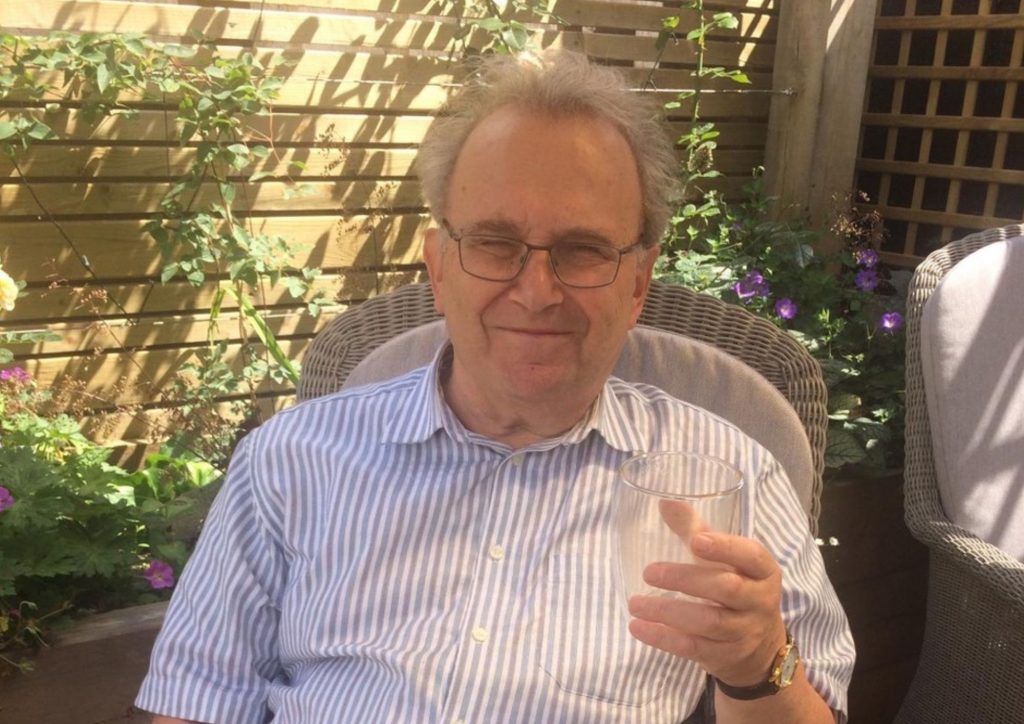Nicholas Jacobs, publisher who brought German literature to UK
Nick once said he was born with a silver spoon and that he ‘nearly choked on it’
Tuesday, 2nd April — By Lizzie Jacobs

Nicholas Jacobs
MY father, Nicholas Jacobs, has died age 85 from prostate cancer.
He spent his career in publishing.
In his lifetime, he achieved his goal of bringing German writers closer to British readers at a time when there was little interest in doing so. Nick moved to Camden in the mid-sixties, at the start of his publishing career and it was his home for sixty years.
The streets of Kentish Town have been the backdrop to his life and he loved where he lived. He would often get excited that Sam’s hardware store on the high road sold anything you wanted.
He loved to go to Phoenicia or The Pineapple pub for a quick lunch and the Owl bookshop for a browse.
Always curious about people and genuinely interested in who you were, he was friendly, inquisitive and kind. Whenever I asked him if there was anywhere else in the world he could live, he simply could not answer.
He initiated three London blue plaques; Italo Svevo in Charlton, and Theodor Fontane and Arthur Hugh Clough, both in Camden. Nick was born in Chelsea in 1939 into a wealthy Jewish family.
His mother, Fay Cohen came from a family that owned Lewis’s, a chain of department stores in the north of England.
His father, Michael Jacobs, was Australian by birth. After serving in Italy in the war, he became a farmer in Hampshire, where Nick was raised.
Michael’s family were in the tobacco trade. Nick once said he was born with a silver spoon and that he ‘nearly choked on it’.
After being sent to boarding school, Charterhouse, from a young age, Nick’s search for other world’s was started by spending time in the local bookshop in Petersfield.
He ferociously read books on Tibet, Lapland, French philosophy and Aldous Huxley.
He left school aged 16 and headed to Paris on a romantic whim, returning to England a year later with a heart filled with European thought and a sense of freedom from having been far away from home and school.
While in Germany on national service aged 18, he stumbled upon a lifelong love of German literature, fuelled also as a reaction to the anti-German feeling after the war.
On leave in East Berlin, he bought a book by Bertolt Brecht of which forty years later he would issue an English translation; The War Primer. Nick took his love of literature and socialist thought and entered the world of publishing.
Working editorially in London for some fifty years, from Cassells in the late 1950s, to Penguin’s in the 1960s and then for left-wing companies, as cofounder-editor of New Left Books (now Verso) and then on to Lawrence and Wishart (LW) (Communist Party publishers).
In the early 1970s it was Nick at NLB who steered the publication of books by Walter Benjamin, Theodor Adorno, and other writers in the tradition of Western Marxism, negotiating contracts with their original publishers and supervising translations.
At LW he was executive editor of The Collected Works of Marx and Engels, overseen by his good friend Eric Hobsbawm.
Having left the Communist Party in 1982 he left LW in 1984. His next and last move was to start his own publishing company, Libris, in 1986. When he retired in 2009, he had published thirty-six titles.
The books reflected my father’s interests: the German-speaking emigration to Britain but mainly poetry and literature, translated from German.

Nicholas Jacobs
Significant Libris titles became Penguin Classics and Oxford World Classics (Goethe, Johann Hebel and Hans Fallada). In 2015, he was awarded The Order of Merit from the German Embassy in London for his services to German literature.
In retirement from publishing, Nick gave tutorials for the University of the Third Age, wrote regular book reviews, including for the CNJ, and made translations from German literature.
What motivated Nick was an unwavering belief in a just and fair society and he was driven by the understanding of how vital literary arts are in creating such a society.
Despite occasional periods of depression, he was engaging company with a beautiful sense of humour: always interested in others, always with something to draw from his wide knowledge.
Reading until close to his last breath, his kind nature and sharp intellect will be missed by all. He and his wife of nearly 30 years, Gill Jacobs, divorced amicably in 2001 and remained faithful friends.
He is survived by their children, Lizzie (myself) and Robbie, and two grandchildren.
For information on his upcoming Memorial please contact me at jacobs.lizzie@gmail.com
LIZZIE JACOBS